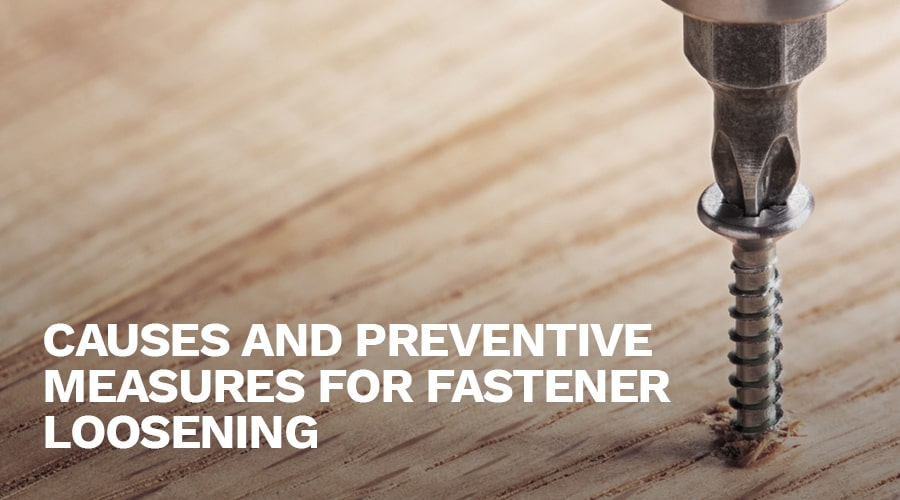


Fasteners are interesting design pieces that literally hold the world together. They are the perfect elements that classify as small but have a significant impact. Almost every industry has its footprint and construction, especially having them as its backbone. They come in different shapes and sizes and cater to a diverse set of requirements across sectors and industries. But as with all mechanical elements, they suffer from loosening too and it can severely damage the objects concerned.
The aim of this write-up is to impart awareness about the frequent root causes of fastener loosening and how to successfully mitigate and prevent them. Without further ado, let’s hop right into the discussion and start things off with important causes.
Among the different fasteners, the two key ones that are used commonly are screws and bolts. Both of them are used to form semi-permanent or removable joints and allow for easy disassembly and reassembly. As such the common issues that cause them to loosen are:-
This is the primary cause of concern while installing a variety of screws, almost all substandard-quality ones have the habit of bursting, splitting and cracking while they are being installed. The main reason behind this is that the load distribution while drilling is improper and excessive load on any side or angle makes them damaged.
While seemingly unimportant, it is one of the key factors of fastener and joint damage when they are mainly machine-driven. The accompanying vibration sometimes makes them slip off and get installed at an improper angle which leads to a bad joint that is prone to damage in the near future.
To keep our objects being joined secure and ensure the long life of the joint, it is a common practice to unknowingly provide too much or too little pressure on the fastener. In either circumstance, this leads to the pressure on the joint being excessive or very loose. The varying pressure makes the joint distorted with time and this risks the object being held to come off easily.
Often a host of environmental factors play a big role in fastener loosening. The main culprit in most cases is extremes of temperature, this causes contraction and expansion of the joints as the case may be and results in joints getting displaced over time. The temperature variation also affects the life span of the fastener and it may pop off early if proper care is not taken.
While being self-explanatory and evident, gaps are still one of the leading causes of loose joints. Gaps have the habit of attracting and accumulating dirt, dust and moisture in the spaces and it creates unnecessary friction in the objects being held together.
A majority of things listed above are fixable and easily remediable. Some solutions are common to both screws, bolts and nails, while some are exclusive to each. Let’s have a look at some of the important ones.
It wouldn’t be wrong to say that washers and nuts are the perfect partners for fasteners like bolts. They make them complete and provide a firm grip and rigidity to the joint concerned. Proper installation of them eliminates the cause of gaps and vibration to a major extent and delivers a robust joint that can withstand the test of time.
Installation of screws requires a pilot hole for precision joining and reducing the wastage of space. It also makes the installation at the proper angle possible with ease. To minimize the risk of pilot hole spacing being improper it is always advisable to use self-drilling screws or if they are unavailable, use adhesives like glues.
Often overlooked, material plays a key role in determining the strength, life and durability of the joint. The use of stainless steel fasteners or corrosion-resistant fasteners has multiple advantages, it reduces the possibility of rusting and moisture accumulation, imparts higher tensile strength and makes the joint more robust and resilient to wear and tear.
Getting a strong and sturdy joint can sometimes be a tough ask, proper care and caution need to be taken to ensure that the objects being affixed or joined have a long-lasting future. Fasteners are the pivot of this, and minor negligence can lead to bad results. Luckily most of these causes can be solved with minimum effort and precaution.
To get the best results and remedy all your worries about sub-standard quality and breakage, it is advisable to give our screws a try and discover the difference with corrosion-resistant fasteners. LP Screw has been leading the quality stainless steel fastener production business for decades and delivering nothing but the best quality to its wide clientele across segments and sectors.